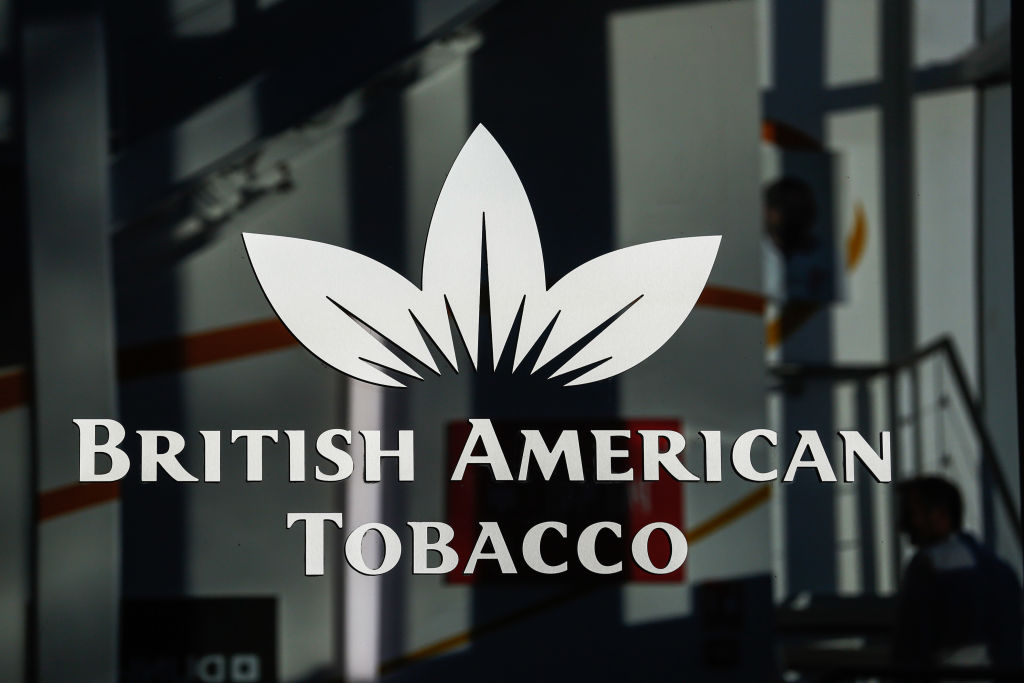British American Tobacco goes smokeless – can it survive?
British American Tobacco’s core product is struggling, but new areas bode well, says Bruce Packard


Get the latest financial news, insights and expert analysis from our award-winning MoneyWeek team, to help you understand what really matters when it comes to your finances.
You are now subscribed
Your newsletter sign-up was successful
Want to add more newsletters?

Twice daily
MoneyWeek
Get the latest financial news, insights and expert analysis from our award-winning MoneyWeek team, to help you understand what really matters when it comes to your finances.

Four times a week
Look After My Bills
Sign up to our free money-saving newsletter, filled with the latest news and expert advice to help you find the best tips and deals for managing your bills. Start saving today!
If financial markets were efficient, then shares would not trade below their intrinsic worth and value investing would not exist. Similarly, if human beings were rational, then they would not smoke cigarettes. We have known for decades that markets are not as efficient as economists’ theories pretend, while there is a link between smoking and serious health problems. Yet undervalued shares and tobacco companies do exist.
Shares in British American Tobacco (LSE: BATS) are trading on seven times next year’s forecast earnings and offer a dividend yield of just over 9%; the company aims to buy back £700 million of shares in 2024, rising to £900 million in 2025. These numbers suggest that BATS has all the features of a traditional “value stock”.
Aside from appealing to value investors, tobacco companies are also rehabilitating themselves with less harmful products. The company publishes an “ESG roadmap”, alongside targets for climate change, biodiversity, women in leadership roles and ethics. BATS’ management is committed to building a “smokeless” world.
MoneyWeek
Subscribe to MoneyWeek today and get your first six magazine issues absolutely FREE

Sign up to Money Morning
Don't miss the latest investment and personal finances news, market analysis, plus money-saving tips with our free twice-daily newsletter
Don't miss the latest investment and personal finances news, market analysis, plus money-saving tips with our free twice-daily newsletter
They target smokeless categories to exceed 50% of revenue by 2035, compared with 18% of group revenue now. That seems ambitious, but the company has fallen behind NYSE-listed Philip Morris International (PMI), which sells Marlboro cigarettes, but also IQOS vapes. In the quarter to 30 June, PMI reported 38% of revenues from smoke-free products and aims to increase that to two-thirds of sales by 2030.
The investment story that management would like to tell is one of declining cigarette sales offset by growth in lower-risk smokeless products. BATS is certainly seeing an accelerating decline in cigarette sales, down almost 14% in the first half of the year; yet the group warned in July that its smokeless products may also miss next year’s targets.
Consumers have switched from cigarettes to buying unauthorised single-use vapes such as Elfbar (recently rebranded EBDesign), imported from China. For that reason, the legal vapour market, including BATS’ Vuse brand, is in decline. BATS is optimistic that the US authorities will soon crack down on the sale of unauthorised vapes. Until then they estimate that those vapes represent over 60% of the total US vaping market, which translates to £60 billion of revenue in the US alone that could be up for grabs.
However, declining cigarette sales and revenue growth down 8% in the first half are not the only reasons that the group trades at a low valuation. In 2017, BATS bought the 58% of Reynolds American that it did not already own for $49 billion. It had been a 42% shareholder in Reynolds since 2004. Aside from geographic expansion, a rationale for the deal in 2017 was “next-generation products”. BATS had already launched glo, a heated tobacco product in Japan, with encouraging results; but Reynolds had owned Vuse, one of the leading US vaping brands, which now has a global market share of just over 40%.
The Reynolds deal stretched BATS’ balance sheet, resulting in £124 billion of intangible assets, funded by borrowings of almost £50 billion and shareholders’ equity of £66 billion at the end of 2018. Management continues to pay down the debt, expecting net debt/ earnings before interest, taxes, depreciation and amortisation (EBITDA) to fall below 2.5 times by the end of 2024.
Then, in October 2023, the FDA issued a ban on Vuse’s menthol-flavoured vapes. Menthol represents around three-quarters of Vuse’s sales. A couple of months later, BATS announced a non-cash impairment charge, subsequently writing down the value of the acquired US cigarette brands by £28 billion, in February this year. This meant BATS reported a statutory loss of £15.8 billion in 2023, the second-largest loss for a FTSE 100 company (NatWest’s £24 billion loss in 2009 was the largest).
The dividend yield of over 9% is 1.5x covered. The challenging revenue environment is now recognised and the shares have risen 10% since 1 July. A Capital Markets Day themed around the firm’s “sustainable growth algorithm” happened on 16 October at the company’s innovation centre in Southampton. Such language borrows from cash-rich, high-growth technology companies, though there’s little in BATS’ numbers to suggest such a parallel with large-cap Nasdaq-listed stocks is valid. That said, if management can show improving prospects for their smokeless products, it could be enough to light up a return to intrinsic value.
This article was first published in MoneyWeek's magazine. Enjoy exclusive early access to news, opinion and analysis from our team of financial experts with a MoneyWeek subscription.
Get the latest financial news, insights and expert analysis from our award-winning MoneyWeek team, to help you understand what really matters when it comes to your finances.

Bruce is a self-invested, low-frequency, buy-and-hold investor focused on quality. A former equity analyst, specialising in UK banks, Bruce now writes for MoneyWeek and Sharepad. He also does his own investing, and enjoy beach volleyball in my spare time. Bruce co-hosts the Investors' Roundtable Podcast with Roland Head, Mark Simpson and Maynard Paton.
-
 Should you buy an active ETF?
Should you buy an active ETF?ETFs are often mischaracterised as passive products, but they can be a convenient way to add active management to your portfolio
-
 Power up your pension before 5 April – easy ways to save before the tax year end
Power up your pension before 5 April – easy ways to save before the tax year endWith the end of the tax year looming, pension savers currently have a window to review and maximise what’s going into their retirement funds – we look at how
-
 Three key winners from the AI boom and beyond
Three key winners from the AI boom and beyondJames Harries of the Trojan Global Income Fund picks three promising stocks that transcend the hype of the AI boom
-
 RTX Corporation is a strong player in a growth market
RTX Corporation is a strong player in a growth marketRTX Corporation’s order backlog means investors can look forward to years of rising profits
-
 Profit from MSCI – the backbone of finance
Profit from MSCI – the backbone of financeAs an index provider, MSCI is a key part of the global financial system. Its shares look cheap
-
 'AI is the real deal – it will change our world in more ways than we can imagine'
'AI is the real deal – it will change our world in more ways than we can imagine'Interview Rob Arnott of Research Affiliates talks to Andrew Van Sickle about the AI bubble, the impact of tariffs on inflation and the outlook for gold and China
-
 Should investors join the rush for venture-capital trusts?
Should investors join the rush for venture-capital trusts?Opinion Investors hoping to buy into venture-capital trusts before the end of the tax year may need to move quickly, says David Prosser
-
 Food and drinks giants seek an image makeover – here's what they're doing
Food and drinks giants seek an image makeover – here's what they're doingThe global food and drink industry is having to change pace to retain its famous appeal for defensive investors. Who will be the winners?
-
 Barings Emerging Europe trust bounces back from Russia woes
Barings Emerging Europe trust bounces back from Russia woesBarings Emerging Europe trust has added the Middle East and Africa to its mandate, delivering a strong recovery, says Max King
-
 How a dovish Federal Reserve could affect you
How a dovish Federal Reserve could affect youTrump’s pick for the US Federal Reserve is not so much of a yes-man as his rival, but interest rates will still come down quickly, says Cris Sholto Heaton